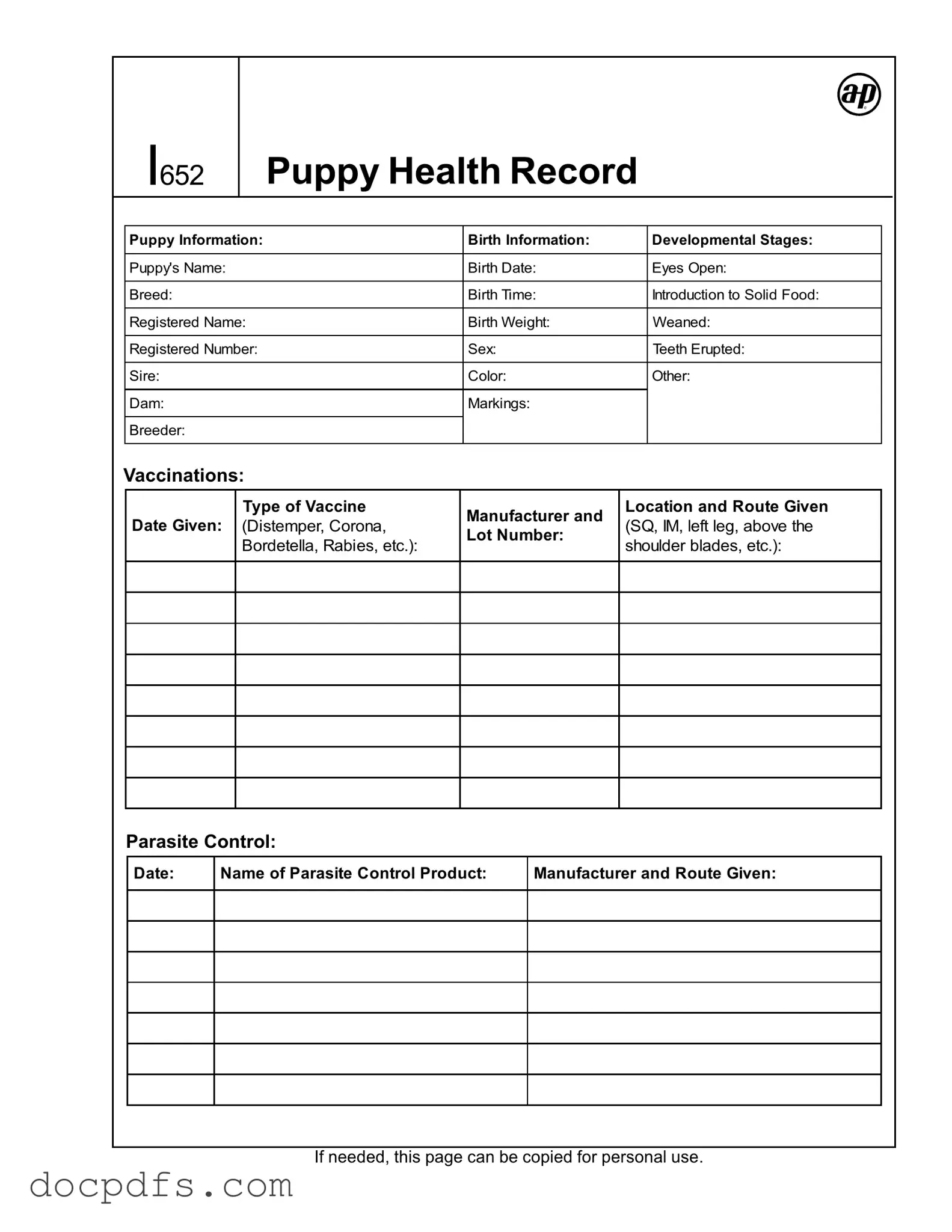Puppy Health Record Template in PDF
The Puppy Health Record form is a vital document that tracks a puppy's health and development milestones from birth through their early months. It includes essential information such as vaccinations, parasite control, and significant developmental stages. By maintaining this record, pet owners can ensure their puppies receive the necessary care and attention for a healthy start in life.
Open Puppy Health Record Editor Now

Puppy Health Record Template in PDF
Open Puppy Health Record Editor Now

Open Puppy Health Record Editor Now
or
⇓ Puppy Health Record
Finish this form the fast way
Complete Puppy Health Record online with a smooth editing experience.